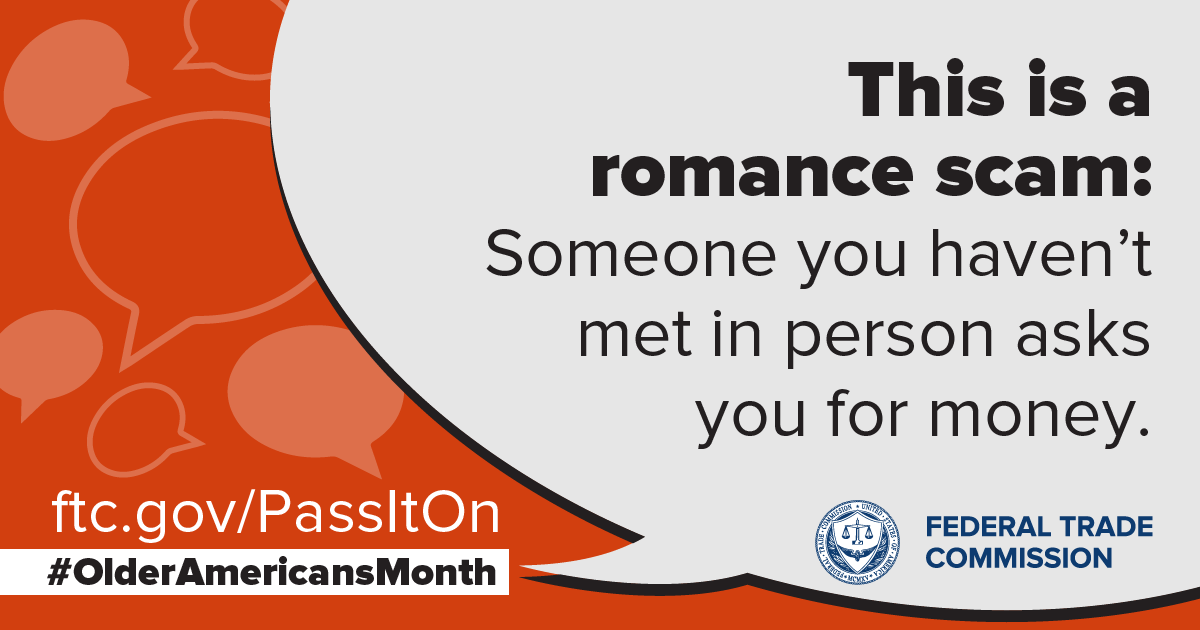It’s never too late to find love, and lots of dating sites and apps are there to help. But scammers are out to steal your heart, too…and then steal your money. This Older Americans Month, let’s talk about romance scams. These can happen when someone makes a fake profile on dating sites, apps and social media. They then message you to get a relationship going, build your trust, and connect.
Then, they hit you up for money. “Baby, I want to come see you but I’m short on funds. Can you send me $500 for a ticket?” Or, “I love you, honey. But we may not be able to talk anymore because my phone is about to get cut off. I need $300 to pay the bill…” Get the idea?
In the name of love, you send money. They come back with other lies to get still more money. Then the messages stop. You can’t reach them. They’ve taken off with a piece of your heart and big chunk of your wallet.
People reported $304 million in losses to romance scams in 2020. Here’s how you can avoid these heartless imposters:
- If someone you’ve never met in person asks you for money, that’s a scam. No matter the story. Never send money or gifts to anyone you haven’t met in person — even if they send you money first.
- Only scammers tell you to buy gift cards, wire money, or send cryptocurrency. Once you send that money, you won’t get it back.
- Do a reverse image search of the person’s profile picture. See if it’s associated with another name or with details that don’t match up. Those are signs of a scam.
Talk to someone you trust about your new love interest, and pay attention if they’re concerned. Learn more by watching this video and at ftc.gov/romancescams. And if a scammer tries to charm you out of your funds, report it to the FTC.

